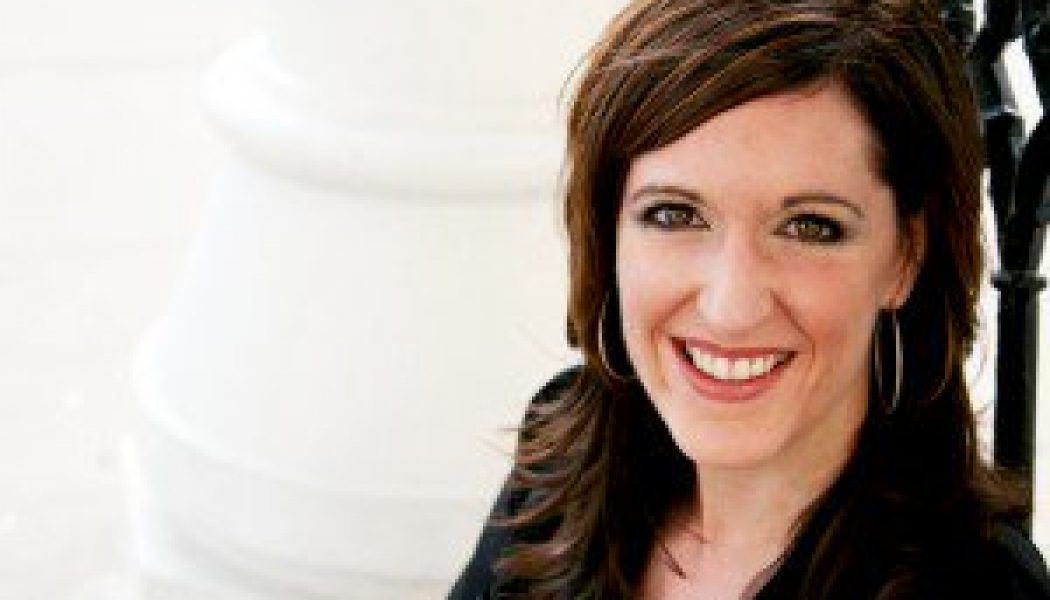Apologetics and the Importance of Listening: A Conversation with Mary Jo Sharp:
 Mary Jo Sharp is an assistant professor of apologetics at Houston Baptist University. She is the founder of Confident Christianity Apologetics Ministry, and an experienced speaker in apologetics. I was impressed with her study, Why Do You Believe That? A Faith Conversation, and so I invited her to contribute to the upcoming worldview edition of The Gospel Project. She is also author of Defending the Faith: Apologetics in Women’s Ministry
Mary Jo Sharp is an assistant professor of apologetics at Houston Baptist University. She is the founder of Confident Christianity Apologetics Ministry, and an experienced speaker in apologetics. I was impressed with her study, Why Do You Believe That? A Faith Conversation, and so I invited her to contribute to the upcoming worldview edition of The Gospel Project. She is also author of Defending the Faith: Apologetics in Women’s Ministry
Today, I’m glad to welcome Mary Jo for a conversation about apologetics and the importance of listening.
Trevin Wax: Tell us a little about your journey from atheism to Christianity.
Mary Jo Sharp: As a teenager, I was not a Christian, nor a person who really thought about God. I was raised in a relativistic environment in the Portland, Oregon area. I was taught to respect people of different backgrounds and beliefs.
Generally, I believed church was for those who needed it. I had a distrust of the church due to my Hollywood-influenced perception of Christianity.
However, in my senior year of high school, a teacher gave me a One Year NIV Bible and told me, “Mary Jo, when you go off to college, you are going to have a lot of tough questions. I would like for you to turn to this for answers.” I respected this teacher and became curious as to what the Bible actually said. I read that Bible all the way through, and that is what brought me around to belief in God.
I was also beginning at that time to question things like “Is this all there is to life?” and “When we die is that the end of our existence?” Yet, I still did not trust in Jesus as my Savior. It wasn’t until I attended a Southern Baptist Church in Oklahoma during college that I understood my status as a sinful human being and my need for a Savior. At age 20, I committed my life to Jesus as my Lord.
Trevin Wax: In some circles today, engaging in apologetics gets a bad rap. What are the weaknesses of apologetic approaches in the past that have led to this disdain?
 Mary Jo Sharp: I think the main weaknesses of engaging in apologetics lies in the misuse of apologetic arguments as a defense mechanism or as a weapon for attack. If a person is a defensive person, an apology can be used to recoil into his own presuppositions or to buttress comfortable dogma instead of investigating what is true.
Mary Jo Sharp: I think the main weaknesses of engaging in apologetics lies in the misuse of apologetic arguments as a defense mechanism or as a weapon for attack. If a person is a defensive person, an apology can be used to recoil into his own presuppositions or to buttress comfortable dogma instead of investigating what is true.
If a person is an argumentative person, an apology can be wielded as a weapon of attack to make another person look bad. I recently saw a blog post concerning how to deal with a Christian “troll” on Twitter; that is how to block a Christian who is being completely abusive and obnoxious on the web.
Trevin Wax: What are the strengths of doing apologetics well?
Mary Jo Sharp: Our goal in utilizing apologetics is to make a case for why we believe in Jesus Christ, like the apostle Paul in Acts 17 and Acts 26. It is not to receive some kind of self-satisfaction in putting another one of God’s creation down.
I discuss the difference between arguing and argumentativeness in my study as the difference between contending for the faith (Jude 1:3) and engaging in foolish, ignorant controversies that result in quarrels (2 Timothy 2:23-24). The good news of Jesus is not a foolish, ignorant controversy, but it can result in quarrels.
The strengths of apologetics include maturing in your own faith and better serving others’ needs. In the study I list the strengths as answering doubts, building confidence, and changing lives.
By studying the reasoning of my faith, I answered my own doubt which in turn built confidence in my faith. This process eventually changed my life, especially in how I treated other people. My daughter summed this up when she told me that I wasn’t petty anymore. I didn’t know I was being petty or that she knew what petty meant at the time! It also changed how I viewed conversations with people about Jesus.
I used to be intimidated to talk about God with people. Now, I have confidence in my beliefs, and so I’m not intimidated by encountering other views. Instead, I am interested in finding out how an individual came to that belief and what their evidence is to support their view. Apologetics helps to engage the person of a different viewpoint with thoughtfulness, which, in turn, helps me to better serve people right where they are at in life.
Trevin Wax: In Why Do You Believe That? you put a strong emphasis on listening to others. What role does listening play in our defense of the gospel?
Mary Jo Sharp: Listening to the person right in front of you helps you to discover how to effectively serve that person.
People we encounter are at different learning points in their own beliefs. Sometimes, a person has studied about their beliefs. Sometimes, a person barely knows their beliefs.
When we assume a stereotype of a person’s beliefs, we might assume something that person either doesn’t know or doesn’t believe. If we ask questions about the individual’s beliefs, and try to understand their beliefs as they do, we can then pinpoint specific issues to discuss.
For example, I engaged in conversation with some folks at my door a few months ago. Instead of telling them what I thought they believed, I asked them, “Who is Jesus?” and “What is Jesus’ purpose?” They had a difficult time with answering these two questions. I realized my background in their religion wasn’t going to be very helpful with these specific folks. So I directed our conversation towards helping them figure out what they believed about Jesus. This was really important to ministering to these individuals. It wouldn’t have well served these two people for me to argue against beliefs they didn’t know or didn’t understand. My conversation with them was more productive because they had to discover and defend their own beliefs.
Listening is also vital in avoidance of creating straw men of other views. A straw man is a weaker version of a person’s argument, and it is an easier version to dismiss or knock down. However, creating a straw man of someone’s argument is not holding yourself accountable to the truth. We need to truthfully represent others’ views as part of our witness of Jesus as the Truth. We should delight in the truth, even in the truthful representation of another’s beliefs. But we must listen with the intent to do so.
Trevin Wax: What’s the relationship between apologetics and evangelism?
Mary Jo Sharp: They like to go to Chick-fil-A to get lunch together. ![]()
Apologetics is part of evangelism. It is a tool by which we can shed light on the truth of Jesus as the Savior of the world.
In 1 Peter 3:15, Peter’s command is that we always be ready to give the reason of the hope that is in us. Notice that Peter says we are supposed to give the reason for why we have hope at all. That’s a really important part of evangelism: the actual reason(s) for our hope!
Apologetics gives us insight into why we believe that Jesus’ death and resurrection are good news for mankind. It also helps us to contrast our view against the other views so we can give good reasons for placing trust in Jesus.
As we share our message of hope, we will encounter tough questions about this life. Studying the reasoning of our beliefs can help us answer tough questions and break down defensive walls. As Greg Koukl of Stand to Reason says, apologetics helps to “till harden soil.” We can answer misconceptions about faith or false beliefs about God and help a person to more thoughtfully engage with the beliefs of Christianity. This may remove intellectual obstacles or emotional obstacles that have been standing in the way of a person trusting in God.
Trevin Wax: What role do questions play in our conversations with other people about what they believe?
Mary Jo Sharp: Christians need to ask more questions. Everyone has a view of the world that they should be able to support; it’s not just Christians that need to support their beliefs.
In my experience, Christians tend to feel like they are the only ones responsible to support their views. As part of loving other people, we need to help them discover (or uncover) the truth about why they believe in a certain view of the world. Not many people I come across in daily life have spent a lot of time thinking about this matter.
So part of our goal is uncovering truth, in general (since God is the giver of all truth). In asking people questions, we can help them discover if their view of the world is incoherent or inconsistent. Then we walk through the process of uncovering the truth with them.
Trevin Wax is the Managing Editor of The Gospel Project, a curriculum developed by LifeWay Christian Resources. He blogs daily at Kingdom People. He is also the author of Holy Subversion (Crossway, 2010) and Counterfeit Gospels (Moody, 2011).









